– NSW Department of Education Religious Education Policy and SRE Procedures (updated 2019)
- Schools are to allow for religious education of two distinct types: General Religious Education (GRE) and Special Religious Education (SRE).
- Schools are to provide meaningful activities for students whose parents have not chosen SRE and, where available, have not chosen Special Education in Ethics (SEE).
- Curriculum for general religious education is provided as part of the Board of Studies NSW syllabuses. Curriculum for special religious education is developed and implemented by approved providers.
DEFINITIONS
- Special Religious Education is education in the beliefs and practices of an approved religious persuasion by authorised representatives of that persuasion.
- General religious education is education about the world’s major religions, what people believe and how that belief affects their lives. It is taught mainly through the school curriculum.
- Special Education in Ethics is education in ethical decision making, action and reflection within a secular framework, based on a branch of philosophy.
APPROVAL TO DELIVER SPECIAL RELIGIOUS EDUCATION
- Religious persuasions must have the approval of the Minister for Education to deliver special religious education.
- Provide an annual assurance regarding the screening of special religious education teachers.
TEACHERS OF SRE
- Special religious education is delivered by religious persuasions that have the approval of the Minister for Education for that purpose.
- Only persons authorised by approved religious persuasions teach special religious
- While on duty, members of a school’s staff do not teach special religious education.
TIME ALLOTTED FOR SRE
- Special religious education is organised by negotiation and agreement between the principal and the approved religious
providers. Principals are sensitive to the voluntary nature of special religious education and are aware that many special
religious education teachers have commitments in more than one school. - On average, not less than 30 minutes and not more than one hour of meaningful teaching time per week should be allocated for Special Religious Education. The lessons or period length for special religious education should be consistent with the age and attention span of the students.
- A flexible time schedule may be used, if the principal and the approved religious providers are in agreement and provided that the time allocated does not exceed an average of one hour per school week. Arrangements are reviewed regularly by the principal
STUDENTS WHO DO NOT ATTEND SRE
- In the times set aside for Special Religious Education, students not attending SRE are located in a separate physical space from special religious education classes.
- Schools provide meaningful activities with appropriate care and supervision. These activities neither compete with special religious education nor are they lessons in the curriculum. Suitable activities include reading, private study and completing homework.
- Special Education in Ethics is an option for students not attending Special Religious Education, where it is practicable and requested by the parents/caregivers.
- When insufficient teachers or accommodation are available, the school’s policy on minimal supervision operates.
COMPLAINTS
- Principals who have received complaints concerning alleged teaching inefficiency or inappropriate lesson content take appropriate steps and notify the representative of the approved provider that authorised the teacher.
- If a principal receives allegations of improper behaviour or other complaints of a serious nature it is managed in accordance with the Department’s policies and procedures. The principal must refer allegations of a child protection nature to the Department’s Employee Performance and Conduct Directorate (EPAC).
RECRUITMENT, TRAINING AND SUPPORT
- It is the responsibility of each approved provider to provide sufficient special religious education teachers.
- It is the responsibility of an approved provider to recruit, train and authorise teachers of special religious education.
- The provider must ensure that the school is informed of the names and contact details of its local representatives and authorised teachers.
- The provider must ensure that all special religious education teachers are provided with a name badge to be worn at all times when on a school site.
- The representative of a special religious education provider should inform the principal when there are insufficient authorised teachers available.
IT IS THE RESPONSIBILITY OF AN APPROVED PROVIDER TO:
- authorise the materials and pedagogy used by special religious education teachers
- provide an annual assurance to the NSW Department of Education (DoE) that authorised teachers are only using materials and pedagogy authorised by the provider
- make lesson content accessible on a website or at least provide a program outline and curriculum scope and sequence documents
- provide information about the content of lessons when requested by parents/caregivers/principals.
TO BE AUTHORISED AS A SRE TEACHER (CATECHIST/ASSISTANT):
- Obtain a WWCC clearance number that is verified by the approved provider
- Complete a Level 1 SRE training
- Meet the Parish Priest
- You will then be given a green SRE authorisation name card to wear on school grounds



